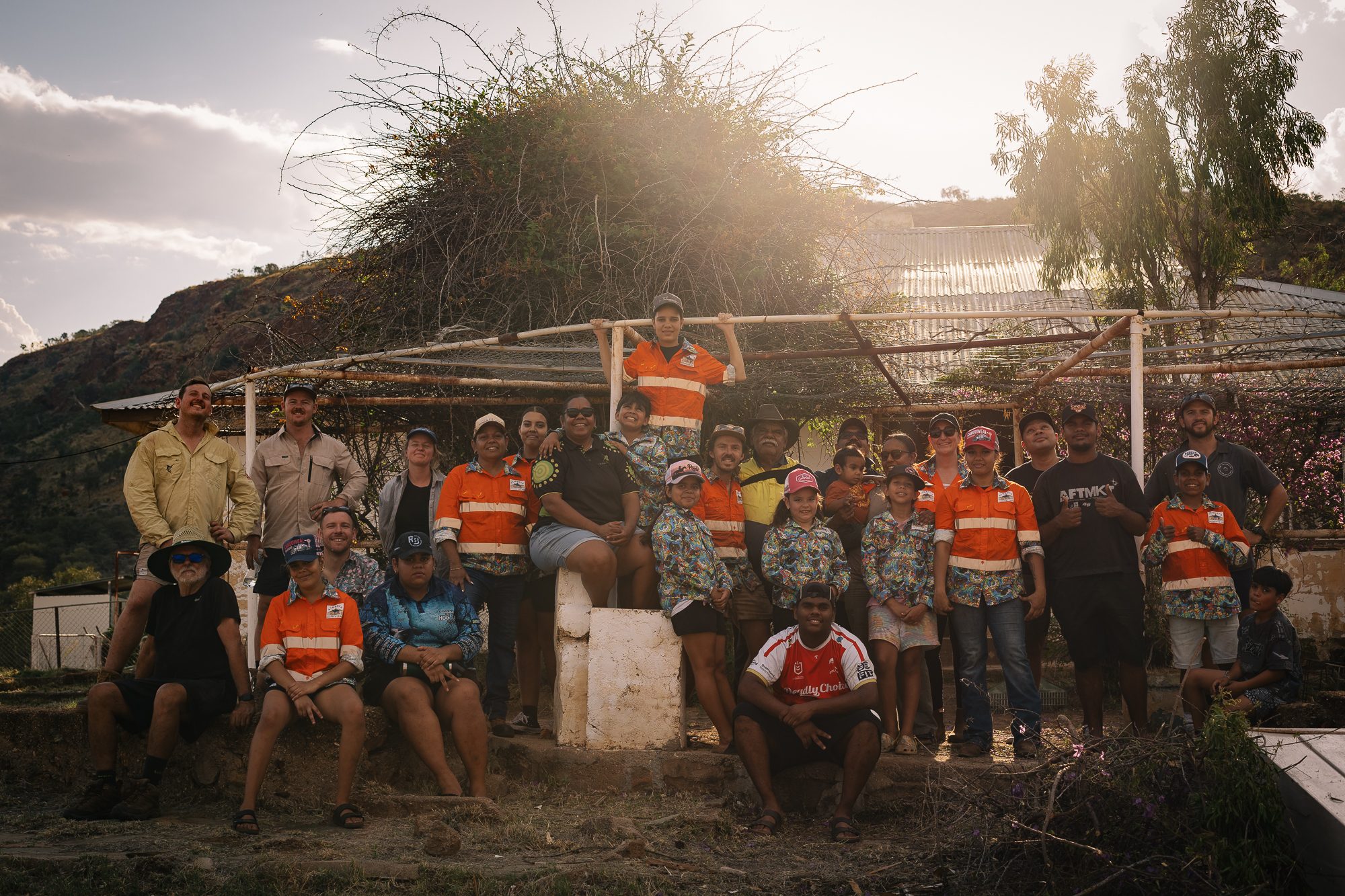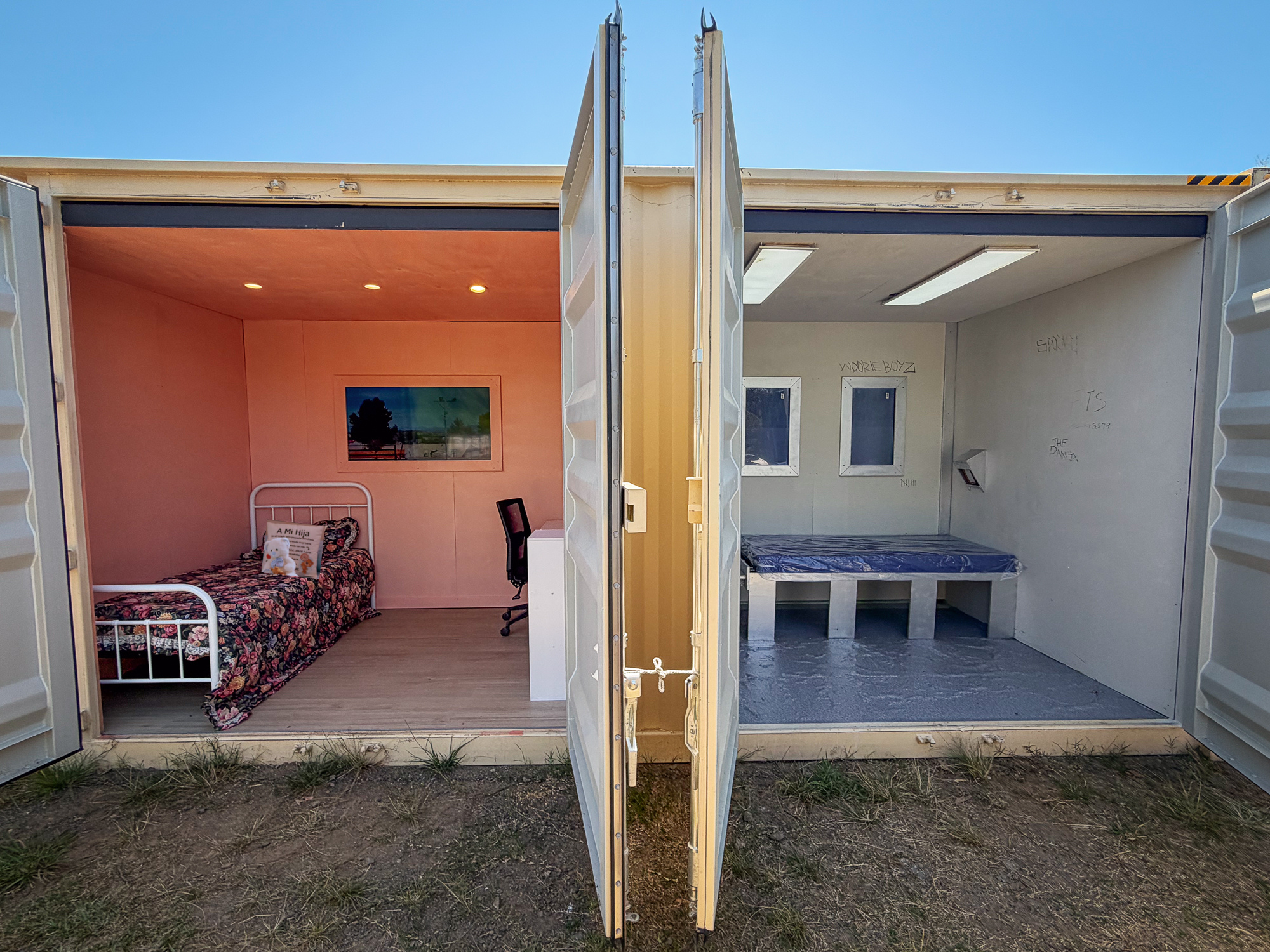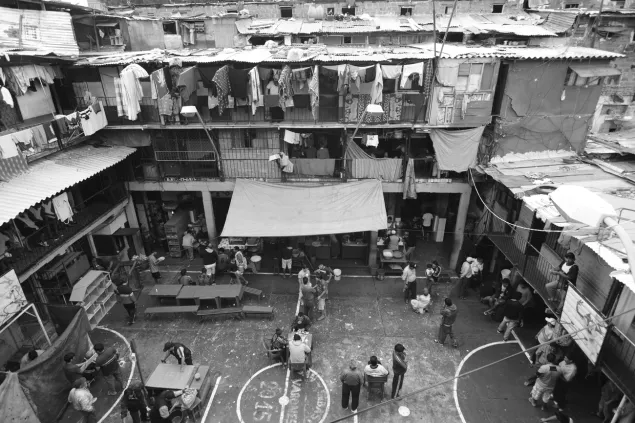Deep Time: Learning to Walk Together - A NAIDOC Week Reflection with Jimmy Frank Jupurrurla
For NAIDOC Week 2025
There's a different quality to time when you sit with Jimmy Frank Jupurrurla. It stretches and breathes, unfolds in layers that connect the boomerangs he crafted with old fellas at nineteen to the housing revolution he's leading today. In his presence, you understand that wisdom isn't measured in minutes but in generations, that true learning requires a patience most of us have forgotten how to hold.
"My name Jimmy Frank Jupurrurla," he begins, "I'm Warumungu, I grew up in Tennant and I got ties from my father in Tennant Creek. One of the Traditional Owners, I have connection to Tennant Creek through from my father's mother, so it was my grandmother's and my grandfather a little bit north, north of Tennant Creek and I got connection also from from my mother's side, around Hermannsburg."
This is how real introductions work - not just a name, but a constellation of relationships, a mapping of belonging that reaches both backwards and forwards through time.
When Jimmy speaks about Wilya Janta, the housing project where he serves as chairperson, his words carry the weight of centuries of others making decisions for his people.
"Once you look at when they came out of missions or out of... when white man first came to here, they moved us around like cattle, you know, and then sheep. And when we were moving in these places, they were non-Indigenous people. These white people were making decisions for us mob. And then over 75, 70 years or 80 years, someone's been doing something for us mob. Then building something and making decisions for us mob, even when the first contact with whitefella, someone else been making decisions for us mob. So we got to break that cycle."

And Wilya Janta is breaking that cycle. Not with grand pronouncements or government initiatives, but with the radical act of asking Aboriginal people what kind of houses they want to live in. Houses that understand ceremony, that accommodate family structures that don't fit nuclear Western models, that work with the climate rather than against it.
"These houses are not right," Jimmy says of the current housing stock. It's not a complaint - it's a diagnosis. And more importantly, it's followed by solution: "Indigenous people want to have mob in to design their own house."
There's a moment in our conversation where Jimmy's voice shifts, carries an edge of something between bewilderment and knowing exactly where the money goes.
"As a Traditional Owner for this country, there's programs and there's a lot of money going into our town, but we've got very little to show for it. So what I'm saying is, as a traditional owner, I think a lot of people benefiting from Aboriginal people in this town and these are non-Indigenous people. These are organisations that come from down New South Wales, Victoria, somewhere like that."
"As Indigenous people, our strong points are not pencil and paper," Jimmy explains. "Our strengths is our culture, our country, you know, and our language. Why aren't this implemented in any of these billions of dollars programs?"
"Say the Youth Justice program. I don't see these, I don't know where the money's going. There's like $3 billion that came in the last three years in Tennant. I don't know where that going. But also every year we got ceremony that happens here and surrounding Tennant Creek. We got native title and extinguished native title in Tennant Creek, and the native title, and we got freehold. So we got all this land. Why isn't every Aboriginal kid got thier Country and home to go back to? Why isn't our culture or our Elders are being involved in programs?"

This is the question that should keep every policymaker awake at night. How do you spend billions addressing problems while systematically excluding the solutions that already exist in community, in culture, in the knowledge systems that have sustained life on this continent for over 65,000 years?
Sometimes the entire dysfunction of a system reveals itself in a single moment. For brother of Jimmy, Norman Frank, that moment came when he had solar panels installed on his roof through Original Power and Wilya Janta's advocacy - the first community housing tenant in the NT to have solar. But there was a catch: he couldn't turn them on.
"He wanted to hit the switch, but he couldn't," Jimmy tells me. "He had to go through hoops and procedures... They didn't let him have the power."
Here was a man with the solution to his power poverty literally sitting on his roof, generating electricity from the abundant Central Australian sun, and he had to wait for a Minister to fly up from Darwin to ceremonially flip a switch he could have flipped himself. If you want to understand the infantilisation of Indigenous people in this country, start there - with a grown man not being trusted to turn on his own power.
Throughout our conversation, I'm struck by how Jimmy teaches without teaching, how he creates space for understanding to emerge rather than forcing it. When I ask clumsy questions about why Indigenous-led solutions haven't happened before, he doesn't lecture. Instead, he paints a picture: "When white man first came here, they moved us around like cattle."
This is pedagogy rooted in respect for the listener's ability to understand, to connect dots, to feel the weight of history without having it explained in patronising detail. It's a generosity of spirit that assumes the best of the learner while never compromising the truth of what needs to be told.
When he speaks about the young fellas he works with, about ceremony and culture, about the dance groups and the arts collective Burruja, you see how knowledge moves in his world - not through curricula or formal instruction, but through presence, through doing, through the patient accumulation of understanding that comes from showing up, again and again.
"I really like your project," Jimmy says about the work we're doing with washing machines designed for remote communities. But what he's really endorsing isn't the machines - it's the approach. Simple rather than complicated. Built to last rather than break. Designed with actual use patterns in mind rather than urban assumptions.

But then he offers something more: a vision of how stories themselves can become sovereign. When we discuss creating systems where people own their own narratives, where cultural knowledge is protected and controlled by those who hold it, his response cuts to the heart of it: "I'm all for people making a difference and making it easy, and then empowering our people... but I got an issue with someone using our word to benefit themself."
This is the crux of it - the difference between extraction and exchange, between taking stories and creating platforms for stories to be shared on their own terms.
What Jimmy has taught me, more than anything, is about time.
Not clock time or project time or funding-cycle time, but the kind of deep time required for real understanding. The time it takes to see patterns across generations, to understand how a conversation about washing machines connects to sovereignty, how a solar panel switch embodies decades of disempowerment.
"I grew up in childhood out in the bush with my father," he tells me, "learned a lot of tradition and life, and that sort of helped me on my life journey." This learning wasn't a curriculum or a program - it was life itself, knowledge absorbed through presence, through watching, through being guided by those who came before.
This is what we - white Australia - have to understand. The work of walking together isn't a project or an initiative. It's a fundamental reorientation to time, to learning, to our place in a story that started long before we arrived. It requires us to shut up and listen, to follow rather than lead, to understand that the solutions we seek already exist in the communities we've systematically ignored.
Jimmy speaks of his work with quiet pride - the cultural liaison role, the arts practice that started with those old fellas when he was nineteen, the way he helps ceremony continue, the youth he guides. But he also speaks of exhaustion, of fighting the same fights over and over, of watching money flow around but never quite to where it's needed.
Yet still he shows up. Still he teaches those of us willing to learn. Still he works to ensure that the next generation of Aboriginal kids have "country and home to go back to."
This is what reconciliation actually looks like - not grand gestures or formal apologies, but the daily work of reshaping systems, of creating space for Indigenous leadership, of learning to value different kinds of knowledge. It's understanding that when we make this journey, we're not doing anyone a favour. We're saving ourselves from the poverty of a worldview that sees only one way of being in the world.
As NAIDOC Week 2025 unfolds, I carry Jimmy's words with me: "We need to be empowered ourself here and then held accountable." This is a statement of what should be obvious. That people have the right to make decisions about their own lives. That the world's oldest continuing culture might have something to teach the rest of us. That the future we need already exists in the knowledge of those we've pushed to the margins.
The invitation is there, carried in every story Jimmy shares, every patient explanation, every moment he takes to help someone like me understand. The question is whether we have the humility to accept it, the patience to learn properly, and the courage to reimagine our systems based on what we discover.
In that different quality of time that Jimmy inhabits, where past and future fold into present action, where ceremony and solar panels and washing machines all connect in a web of community care, there's a richness of being that our rushing world has forgotten.
This NAIDOC Week, may we all slow down enough to glimpse it.
With deep gratitude to Jimmy Frank Jupurrurla for his time, teaching, and trust. May we prove worthy of the knowledge shared.
[Author's note: This piece was written with permission, centring Jimmy's voice and perspectives as shared in our recorded conversation. Any errors in understanding remain my own.]





.svg)